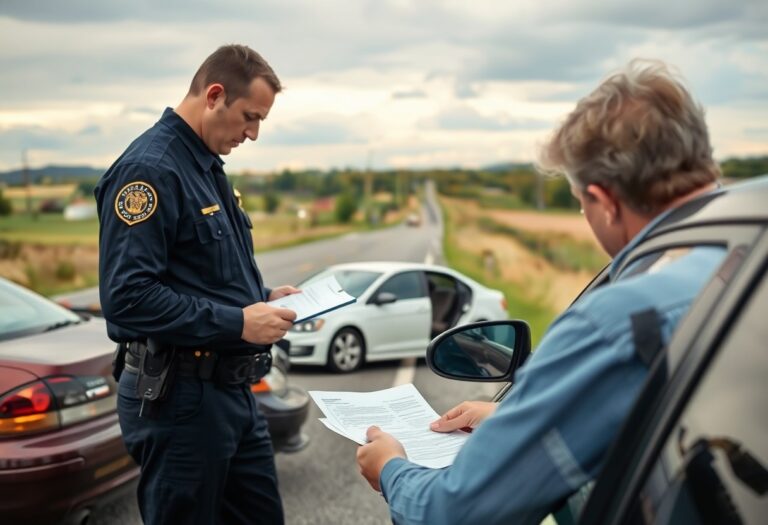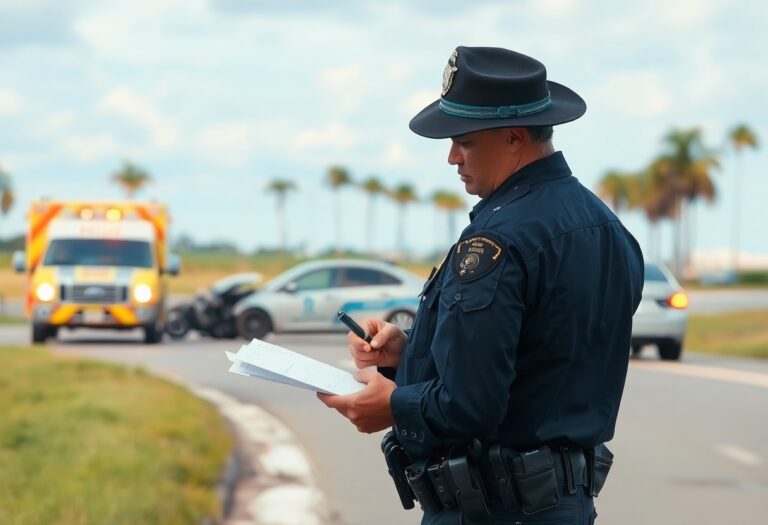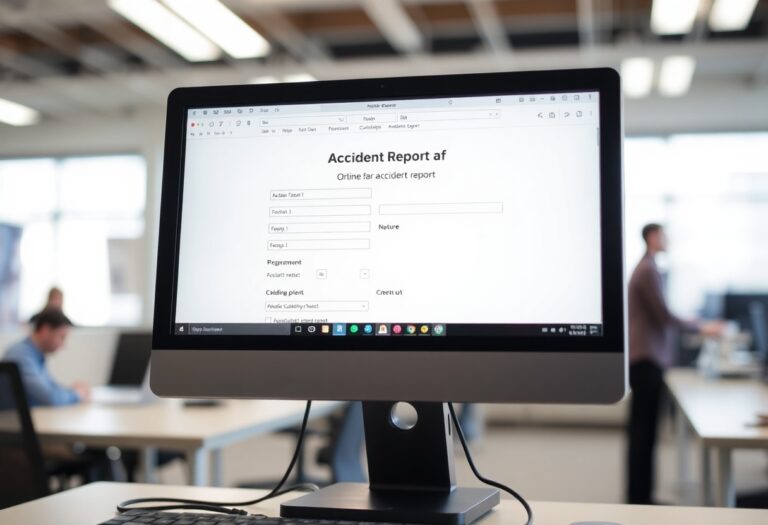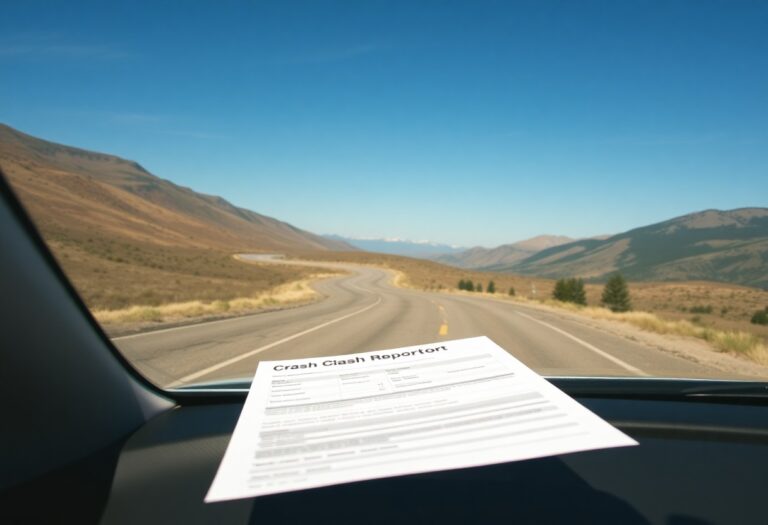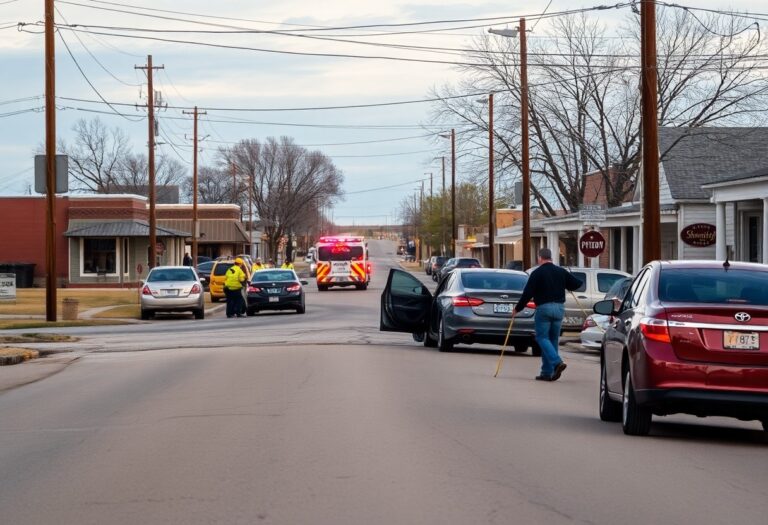With a streamlined process for obtaining car accident reports, Craig County, Oklahoma offers you a simplified path to resolving the aftermath of an accident. Navigating the complexities of post-accident documentation can be overwhelming, but local resources are readily available to assist you. Understanding your rights and the necessary steps is necessary for a smooth experience. This blog post will guide you through the necessary information you need to make your report retrieval efficient and stress-free, ensuring you can focus on recovery and moving forward.
The Legal Landscape of Car Accident Reporting in Craig County
Your understanding of the legal landscape surrounding car accident reporting in Craig County is important for navigating the aftermath of a vehicle collision. Local laws dictate how, when, and where you must report an accident, ensuring that you remain compliant and avoid potential penalties. Familiarity with these regulations positions you to handle the situation more effectively, whether you’re a driver, passenger, or bystander involved in an incident.
Navigating State Laws and Regulations
State laws surrounding car accident reporting vary, and you must comply with Oklahoma’s specific mandates. In Craig County, any accident resulting in injury, death, or damage exceeding $300 must be reported to law enforcement without delay. Additionally, you may be required to file a report with the Oklahoma Department of Public Safety, and failure to do so can have legal repercussions.
Key Reporting Requirements for Drivers
Each driver involved in an accident carries specific reporting responsibilities. You are required to exchange pertinent information, including your name, contact information, insurance details, and license plate numbers, with the other party. Furthermore, notifying the police promptly contributes to an accurate record of the incident, which may benefit you in any ensuing legal or insurance processes. Be prepared to document the scene with photos and witness contacts to support your case.
Reporting requirements for drivers extend beyond just informing the authorities; details matter immensely. For instance, any accident that leads to injuries or significant vehicle damage must be followed up with a written report submitted to the local police department within 10 days. Ensuring you adhere to these timelines can significantly impact any claims or litigation that follow. Keep copies of all documents for your records, as they will aid you in dealing with insurance claims, proving fault, and potentially contesting any citations issued during the investigation.
The Importance of Timely Accident Reports
Filing your accident report promptly protects your legal rights and ensures accurate documentation of the incident. Timeliness plays a vital role in the investigation process and contributes to a clear understanding of the events leading up to the accident. When you act quickly, you preserve crucial evidence, witness recollections, and other imperative details that may otherwise fade over time. Prompt reporting can also facilitate negotiations with insurance companies, expediting claims resolution and helping you receive the compensation you deserve.
Consequences of Delayed Reporting
Delayed reporting can have significant repercussions for your case. For instance, your claims may be weakened if evidence becomes lost or witnesses forget vital details. Insurance companies may even deny your claim based on late filing, questioning your credibility and the circumstances surrounding the accident. Unanticipated complications can arise, leaving you in a vulnerable position without proper support.
Understanding Insurance Implications
Your accident report carries substantial weight when dealing with insurance claims. The content you include directly impacts your insurer’s assessment and payout determination. If you file your report late, the insurer may argue that your account lacks reliability, potentially leading to reduced compensation or outright denial. Each policy has specific reporting timelines, and straying from those can harm your ability to recoup losses resulting from the incident.
For instance, many insurance policies stipulate that you must report an accident within a certain number of days, often around 24 to 72 hours. Failure to meet this requirement can label you as non-compliant, which may lead to insurers questioning the validity of your claim. Additionally, accurate and timely reports can provide a foundation for any legal proceedings that may arise, protecting your interests not just with insurers but also in the event of lawsuits. Ensuring you meet reporting timelines cultivates a smoother recovery process and fosters transparency with insurance providers. Your diligence can make a substantial difference in the resolution of your claim and help secure the compensation you need.
Simplifying the Accident Reporting Process
Filing a car accident report doesn’t have to be overwhelming. By understanding the necessary steps and information required, you can streamline the process, making it more manageable and less stressful. Whether you’ve been involved in a minor fender bender or a more serious collision, knowing how to navigate the reporting landscape helps ensure you comply with local laws and can assist with potential insurance claims.
Essential Information to Gather at the Scene
Collecting key information at the accident scene is vital. This includes the names, contact numbers, and insurance details of all drivers involved, as well as the vehicle license plates and descriptions. Take note of the accident’s time, date, and location, and don’t forget to gather eyewitness testimonies or photographs of the scene for further record.
Recommended Steps for Filing a Report
To file a report effectively, start by contacting local law enforcement to report the incident; they will create an official report that includes all crucial details. Once you receive a copy, file it with your insurance provider to process any claims. Depending on the severity of the accident, you might also wish to consult with a legal professional for additional guidance.
Initiating the process of filing an accident report can feel daunting, but breaking it down into steps makes it easier. First, ensure that everyone involved is safe and then contact the police to report the incident. Following the police involvement, gather your own account of the accident, along with any collected information from witnesses. You can then draft a summary report, which should include those crucial details. Submitting this report to your insurance company promptly is vital for swift claim processing and maintaining your coverage. This organized approach can greatly reduce the stress associated with accidents.
Utilizing Local Resources for Stress-Free Assistance
Accessing local resources can significantly simplify your experience following a car accident. In Craig County, numerous organizations and services are dedicated to helping residents navigate the aftermath of such incidents. Engaging with these resources not only streamlines the recovery process but also eases any stress related to legal and administrative tasks.
Local Law Enforcement and Their Role
Your local law enforcement officers play a pivotal role in handling car accidents in Craig County. They are responsible for securing the scene, ensuring safety, and gathering crucial information for accident reports. By contacting them promptly after an accident, you can ensure that an official report is filed, which is vital for insurance claims and legal proceedings.
Community Services and Legal Aid Options
Various community services and legal aid options are available in Craig County that can help guide you through the complexities following an accident. Organizations such as the Craig County Bar Association offer resources, while local non-profits may provide legal consultation at reduced rates or even for free. Connecting with these resources can ease the emotional burden and assist in navigating your rights and responsibilities after an accident.
Community services also extend to consultations with attorneys who specialize in personal injury and auto accidents. Many local lawyers provide free initial consultations, enabling you to assess your situation without financial commitment. Furthermore, resources like public defenders or legal aid clinics assist individuals facing financial hardships, ensuring that everyone can receive valuable legal guidance regardless of their economic status. By exploring these local options, you can find the support you need to move forward with confidence.
Common Pitfalls to Avoid in Accident Reporting
Many individuals overlook imperative components of accident reporting that can negatively impact their claims. Whether it’s the language used, the details included, or the lack of follow-up, avoiding these pitfalls can streamline your process. Familiarizing yourself with common mistakes enhances your ability to assert rights effectively and receive the compensation you deserve.
Miscommunication with Insurance Companies
Inaccurate or vague communication with insurance companies can lead to misunderstandings that complicate your claim. Clear, consistent dialogue is vital, especially when providing documentation. Any discrepancies can delay processing or even lead to denied claims, ultimately affecting your compensation. Staying organized and proactive can help ensure that your claims are handled smoothly.
Overlooking Critical Details in Reports
Focusing solely on the incident’s main events may lead to missing details that significantly impact your claim. You might forget important witness statements, weather conditions, or even the exact location of the accident. These seemingly minor elements could be the difference between a successful claim and a frustrating denial.
Consider a scenario where you provide a basic account of the accident without noting environmental factors, such as poor visibility or road conditions. If your claim is scrutinized and lacks sufficient details, your insurance company may question the circumstances, leading to further investigation or even denial. Documenting every aspect comprehensively, including witness contact information and photos of the scene, ensures a robust report, protecting your interests as the process unfolds.
Final Words
Presently, navigating the aftermath of a car accident in Craig County, Oklahoma, can be made easier with efficient assistance for obtaining your accident report. You can access the information you need without unnecessary stress, allowing you to focus on recovering and addressing any claims or legal concerns. Whether you require guidance on how to file for your report or need support in understanding the details, local resources are available to ensure you receive the help you deserve.







